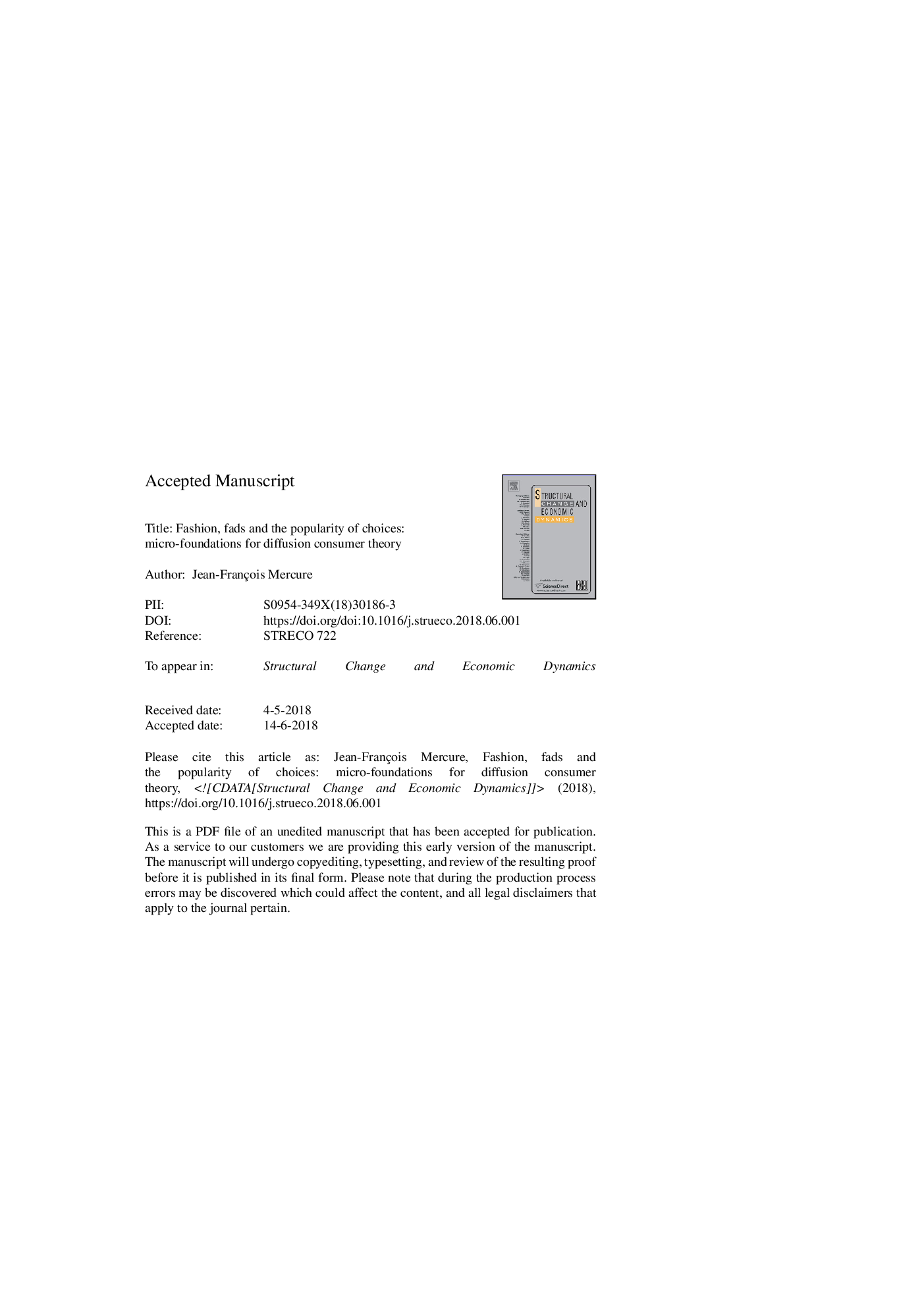| Article ID | Journal | Published Year | Pages | File Type |
|---|---|---|---|---|
| 10153850 | Structural Change and Economic Dynamics | 2018 | 24 Pages |
Abstract
Knowledge acquisition by consumers is a key process in the diffusion of innovations. However, in standard theories of the representative agent, agents do not learn and innovations are adopted instantaneously. Here, we show that in a discrete choice model where utility-maximising agents with heterogenous preferences learn about products through peers, their stock of knowledge on products becomes heterogenous, fads and fashions arise, and transitivity in aggregate preferences is lost. Non-equilibrium path-dependent dynamics emerge, the representative agent exhibits behavioural rules different than individual agents, and aggregate utility cannot be optimised. Instead, an evolutionary theory of product innovation and diffusion emerges.
Related Topics
Social Sciences and Humanities
Economics, Econometrics and Finance
Economics and Econometrics
Authors
Jean-François Mercure,
